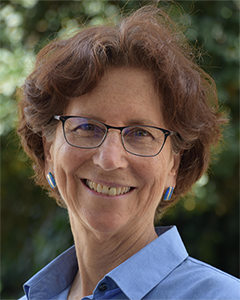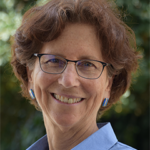Joe Biden’s selection of Kamala Harris as his running mate sent a message that climate change policy in a Biden Administration will focus on ensuring that communities already burdened by pollution benefit from a transition to clean energy, following up on Senator Harris’ recent proposed legislation, the Climate Equity Act.
Equity was also the focus of The Climate Center’s Community Energy Resilience Policy Summit on August 5th.
Click here to view the highlights of the 3-hour online summit.
The Summit started with a video summarizing results from recent research from UCLA highlighting inequities created by clean energy incentive programs.
The opening keynote speaker, Oxnard Mayor Pro Tem Carmen Ramirez, reviewed her city’s successful struggle to halt construction of new local fossil fuel infrastructure.
The first panel provided an overview of state clean energy resilience policy moderated by Janea Scott, Vice-Chair of the California Energy Commission (CEC). Vice-Chair Scott described CEC-funded resilience projects. California Public Utilities Commission (CPUC) Commissioner Genevieve Shiroma reviewed CPUC resilience-related programs, particularly the Self Generation Incentive Program. Eric Lamoureux from the California Office of Emergency Services explained the state’s response to emergencies including wildfires and public safety power shutoffs. California Senator Henry Stern discussed his recent related legislative efforts and the importance of advocates in shaping state policy, including an endorsement of The Climate Center’s Climate-Safe California initiative.
The second panel, “What is a just transition and how do we get there?” was moderated by labor attorney Mark Kyle. CSU Professor Vivian Price described the concept of “just transition” as initially having the objective of providing a future for workers particularly impacted by efforts to limit greenhouse gas emissions, and that more recently, the term has envisioned a world in which fairness, equity and ecological rootedness are core values. Jennifer Kropke with IBEW and the National Electrical Contractors Association explained transition challenges. Coal and natural gas power plants are large, take time to construct, and require a lot of maintenance, while renewable energy generation is very different in how it is currently constructed and maintained. There are huge wage and benefit disparities between non-union rooftop solar installers and oil refinery operators.
The third panel, “Environmental Justice – energy systems and policies that serve frontline communities” was moderated by Janina Turner from The Climate Center. Nayamin Martinez with the Central California Environmental Justice Network addressed efforts to fight environmental racism in the San Juaquin Valley — challenging because critical employers are the same companies creating pollution. Gabriela Orantes with the North Bay Organizing Project explained how disaster relief and recovery efforts in Sonoma County have systematically excluded the most vulnerable. Mari Rose Taruc with Reclaim Our Power described environmental justice successes in recent years and also provided provocative details of remaining environmental injustices occurring in California and the need to further democratize the governance of our energy system and California policy process, currently with mostly white people making decisions.
The final panel, “Community choice energy: building clean energy resilience for low-income customers” was moderated by Carolyn Glanton of Sonoma Clean Power. Sage Lang with Monterey Bay Community Power provided examples of her agency’s resilience-related programs. Stephanie Chen from MCE Clean Energy explained the severe impacts of PG&E’s 2019 power shutoffs and MCE’s resulting new energy resilience programs. JP Ross from East Bay Community Energy described EBCE’s resilient homes program as well as severe impacts from PG&E disconnections.
For more information, check out the Summit agenda with links to presentations, speaker biographies, and a link to the full Summit video.

